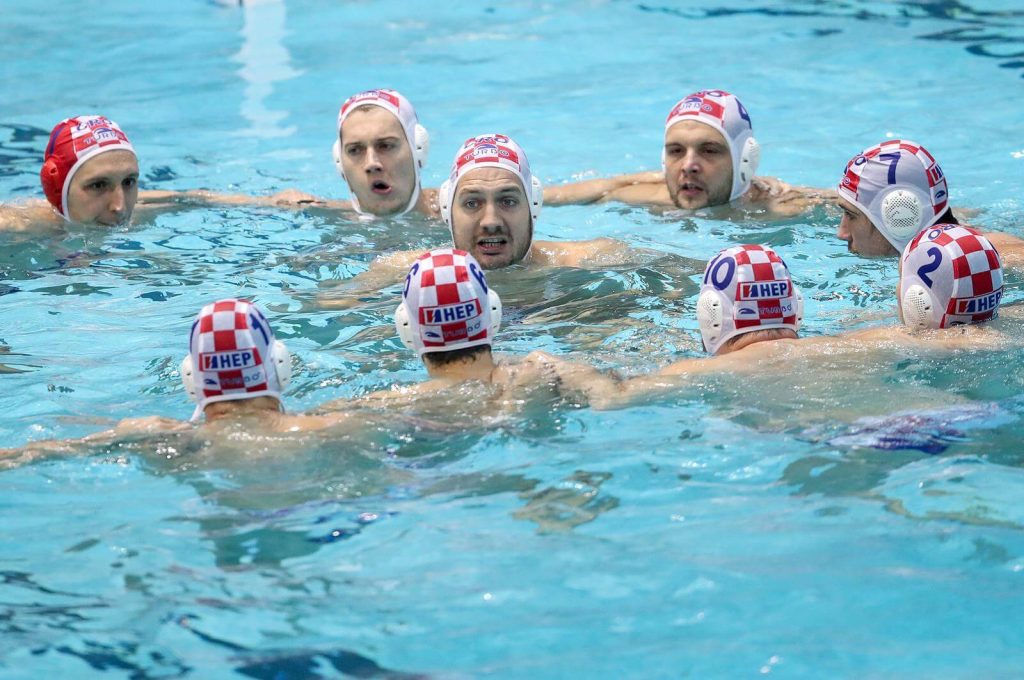In the last two national water polo competitions, Croatia had one of the oldest national teams. At the European Championships in Budapest in January 2020, the Barracudas were the second most senior national team with an average of 29.4 years (behind Serbia, 30.7 years). At the Olympic Games in Tokyo in August this year, Croatia reached the top with an average of 31 years and 77 days or slightly ahead of Serbia with 30 years and 325 days, reported HVS.
It was thus clear that the team would need to be rejuvenated; it was inevitable that some players would retire.
The oldest Croatia player, Xavi Garcia (38), announced he would end his playing career at the Olympic Games. During the tournament in Japan, national team captain Andro Bušlje told reporters that he was probably saying goodbye to the national team. After returning from Tokyo, it was agreed in principle that after a short time, the coach would talk to the players, especially the seniors, and discuss how the team would look entering a new Olympic cycle. Now, two and a half months after Tokyo, it has all become clear.
“Along with Xavi Garcia, who finished playing water polo, and Paulo Obradović, who also finished his Croatia career after Tokyo, captain Andro Bušlje, co-captain Maro Joković, and center Luka Lončar said goodbye to the national team. I still left a slightly open option with Joković and Lončar to make them available in some situations if required, but in principle, it is their decision. I still have to go to Belgrade in the next few days and talk to Josip Vrlić,” said coach Ivica Tucak in an interview with Sportske Novosti.
“These are simply players who have given everything as far as the national team is concerned, which at certain years are tired, saturated and we have to look to the future. We need to move in a new direction. I have always said that the national team’s doors will be forever open for some possible corrections if we see that we are thin in some positions or do not have appropriate solutions. However, we need to turn things around. We can no longer go further with people who are 35-38 years old. It doesn’t work anymore. Not that we can’t, but they can’t either. That is inevitable in every sport, but I am not pessimistic. It will take a clear bit of time and patience to sort this out. We already have some players from before, we are counting on them, and now we are going to join new ones,” adds Tucak.
The Croatia coach also indicated some players who are returning to the team.
“What is certain is that Ivan Krapić is returning to the national team. I had a conversation with him. With his energy, work, and professional qualities, he can offer a lot, give to this national team,” says Tucak about the center that formed a tandem with Luka Lončar at the World Championships in Budapest in 2017, when Croatia won the world title for the second time.
“Rino Burić, Marko Žuvela, Franko Lazić. These guys have to get a chance and deserve it with their games in their clubs. With those who will remain like Fatović, Bukić, Vukičević, Bijač, Marcelić, Macan, Benić… and then Kharkov. These are all players who play significant roles in their clubs; they also play in the Champions League. We are also following the young center Lovro Paparić, the slightly older Luka Lozina, both of whom play in Greece, and then Antonio Dužević at Jadran. I am also counting on Jerko Marinić Kragić. He is 30 years old, but he is a player I have been following since 2008, from the junior national team. He is one of the leading players for Jadran today. He deserves to be in the national team, and if he wins a spot, it will be seen through the preparations,” said Tucak.
In addition, the national team staff also changed. Tucak’s assistants are no longer Mile Smodlaka and Sandro Sukno, who lead big clubs Jadran and Pro Recco. Especially in this challenging and long 2021/22 season, in which clubs will be forced to suspend national and European club competitions in the spring of 2022 due to national team preparations and appearances at the World Cup in Fukuoka, and then immediately resume matches, so that the summer is used to prepare for the European Championship in Split.
“My first assistant will be Zoran Bajić, the coach of Mladost because he will have slightly fewer obligations with his club than the duo so far. Furthermore, I want to include Fran Vićan and Renc Posinković in my work with goalkeepers. This will be a novelty because not only will they be goalkeeping coaches, but they will also sit with me on the bench during matches, and they will communicate with the goalkeepers; they will be in charge of changing the goalkeepers and the like. Whether the goalkeeper’s coach will be Vićan or Posinković, we will see from their obligations. I will certainly include Jura Marelja, the coach of Solaris, in the work of the national team, for one part of the preparations,” said Tucak.
In early November, coach Tucak should soon announce the list of national team players for the first, short-term preparations (2-3 days). In the middle of next month, the European club champion Pro Recco will arrive in Zagreb for 4-5 days to train with the Croatia national team. Finally, towards the end of this calendar year, Italy should arrive in Zagreb before Croatia travels to Belgrade for preparations with Serbia in the first days of January 2022.
To follow the latest sports news in Croatia, follow TCN’s dedicated page.
To learn more about sport in Croatia, CLICK HERE.








